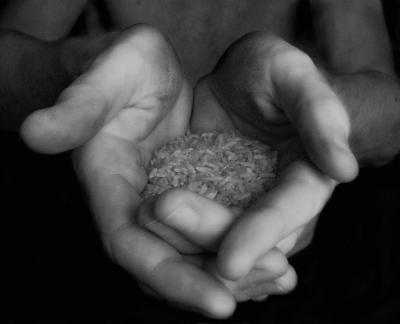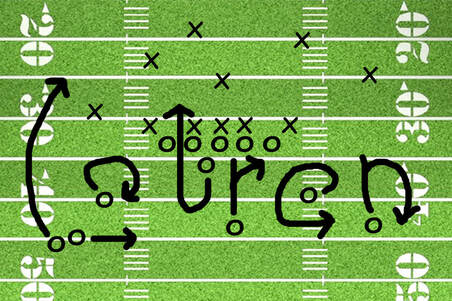all of the selves we Have ever been
 After a year of living like Big Foot, I am preparing for re-entry into the post-pandemic world by once again showering daily, applying make-up, and wearing clothes with waistbands. This morning I decided to go all out and put on a pair of earrings. When I opened my jewelry box the first thing to catch my eye was a black card containing a pair of “fashion earrings,” at least that’s what the card said. The earrings are shaped like sand dollars each nearly as large as the real thing. I have had these earrings for about 20 years, and they still sparkle like gold. These “jewels” remain on the card, unworn, because they are clip-ons and because they were a gift from my sweet children when they were small. The children purchased the earrings from the souvenir shop at the Virginia Marine Science Museum during a vacation with their father. I treasure the earrings and the memory. They will go with me if I am ever on the run. When my son, Sam, was a preschooler, he would browse the aisles of a store looking at all of the items that interested him. If he spotted something he wanted to purchase, Sam would call out, “Mom, do I have enough cents?” The spoken version of those words usually drew chuckles from the adults in the store. Little children know nothing of the origins of money or the value each coin or bill represents and yet they are masters of the art of giving. Children are eager to give long before they become wage earners and spenders, long before gift-giving becomes an obligation on their calendars, long before they come to expect anything in return. They give because it is natural and pure joy to do so. On February 20, 2020, Virginia Douglas published an essay, The Voice Said God Bless You, on the online magazine, The Braided Way. Douglas described her many interactions with the homeless, particularly, a man in her community named Danny. Douglas pondered why it is the homeless who always say, “God bless you,” in return for an act of kindness when others of greater means might not say thank or even acknowledge a special courtesy. Douglas’s question stayed with me all year like the newsfeed silently scrolling beneath the chatter of the evening news, drawing my attention away from the noise of the day and into a sacred space inside me. This morning, opening my jewelry box brought the question back as the top story. In her essay, Douglas offered up her own thoughts in answer to the question of why the homeless are the ones to say, “God bless you.” She speculated that when goodness comes out of nowhere, there must be a God to be thanked, or perhaps, the first encounter with Danny coming at Christmas, Danny “might be Jesus.” Once Douglas established a pattern of giving to Danny, the thought of seeing him again caused Douglas some anxiety. Had she established an expectation in Danny by giving him money? A friend advised Douglas to keep a bag of goodies in her car “so that you have something to give.” Having something to give relieved Douglas of her worry, and she continued to give to Danny whenever she saw him. The story got me thinking about the many ways we “give.” Giving can be pure instinct and joy. It can become the basis of connection and relationship. But giving can also establish expectations that then become hard to meet. Sometimes giving becomes nothing more than an obligation even leading to hurt or resentment. Sometimes people give not to honor the beneficiary, but to show off. It matters not just what we give, but also why. Whenever I see a homeless person holding a sign at the highway entrance or sleeping on a park bench, I feel a sense of shame and self-consciousness about having come unprepared with nothing to give. Having nothing to share violates that instinct to give that is present in us as children. I instantly re-evaluate my life and am filled with an awareness of all that I have however humble it seems in comparison to others. God has blessed me. Thinking about how hurtful it is to be ignored, rendered invisible, I give the gift of acknowledgement. I do not look away. Historically, people who are struggling financially receive many negative messages about what kind of people they are. Somehow their needs must be their own fault. More recently, the pandemic has made it clear that disaster can strike anyone at any time. It takes courage to ask. And when we give generously, we get something back, something intangible. We express generosity as givers but gratitude is also a gift and a grace offered by the receivers of our generosity. Why are the homeless the ones to say, “God bless you?” Maybe because it feels good to give back, even if only a prayer. Giving something back equalizes the relationship. It adds some beauty to the world. When people connect out of kindness, perhaps God does bless that union. Maybe the homeless men and women are priests. And maybe God blesses the person who sees his neighbors. In the story of Jesus, he was on a mission. His people were the poor and brokenhearted. Maybe Danny was Jesus; if not, he was certainly one of the beloved. In this high tech, tumultuous world, we are encouraged to say hateful things about our neighbors, to behave outrageously. Without vigilance we will be robbed, not of our money, but of our instinct to be kind, to give generously, and to experience the joy and the grace that come naturally with giving. It costs nothing to see a person, to acknowledge their presence with our eyes, our ears, our words, our attention. Throughout history, so much conquest, so many of the world’s troubles were brought upon mankind in the name of someone’s God. If we are to use God’s name, let it be in the service of triumphing over poverty, greed, and unkindness toward our neighbors. We need each other. There is magic in giving. May God bless you.
4 Comments
 I tried a new recipe this morning. As I mixed condiments into a sauce to spread over some raw chicken, I began to doubt my choice of recipes. “Oh, geez! That looks like diarrhea,” I said. While not an enjoyable sensory experience, it did bring back a memory from my youth, and it made me smile. When my mother grew tired of her children’s complaints about “what’s for dinner,” she had a standard response for the next and last critic of the day. “What’s for dinner, Mom?” “Shit on a shingle.” “Mmm. Sounds good, Mom.” Enough questions asked. Suddenly, cabbage and Brussel sprouts didn’t sound so bad even if they smelled the same as the daily special. It was a master’s strategy. My mom was a well-educated, articulate microbiologist, not a mental health therapist, but she sure understood the power of crass language and visualization for changing minds and behaviors. Face it. Cooking for a family is hard work. Thinking about what to cook in order to please every taste is exhausting. However, children don’t know all of that. They are primitive pleasure-seekers with uneducated palates. They want what they want. It is easy to complain when a full meal appears on your table every evening. We were regularly reminded to eat what was on our plates and not be wasteful. “There are children starving in China,” our parents said. That was another master strategy–using guilt to gain compliance and elicit gratitude. My knowledge of China was limited to canned La Choy Chop Suey and the understanding that if I dug deep enough, I could tunnel my way to Asia. I thought my parents made up the story of those hungry children just to shut us up. Turns out children really were starving in China. While I was grudgingly choking down limp spinach, the Great Chinese Famine was taking 36 million lives. I guess that would have been far too much for a six year old to comprehend. It still seems unfathomable. Old-style parents weren’t about to explain themselves, or make six different meals, or fly in an order from a Michelin three-star restaurant in New York. There were limited prepared or processed foods in the house and, most certainly, no microwave to fix something special and quick for each picky eater. If visualization and guilt did not work, it boiled down to “Eat what’s on your plate…or else.” Going to bed without supper was an option in the parenting playbook, and we were smart enough to know that the “or else” chapter might contain scary mysteries we could imagine no better than a great famine. And so I plan to eat that chicken I made this morning--no matter what. Thankfully, it came out of the oven transformed--moist, browned and smelling delicious. Hopefully, I won’t be thinking of diarrhea when I dig in at dinner tonight. During this time of COVID-19, I employ the strategies from my parents’ old playbook. I take a bit of this and that from the refrigerator and craft a wholesome and delicious meal. I eat my sour-smelling vegetables, and I am grateful. The daily news reminds me that people in my own country as well as others around the world are going hungry. I don’t complain. I eat what is on my plate, and I do not waste food. I have not had to go to bed without supper. However, I do wonder what scary “or else” COVID-19 may be keeping from us. I pray there is a chapter in my parents’ old playbook that will see me through. Bon appetit!  Researchers report that gratitude is good for body, mind and soul. I am reminded of this fact every morning when I step into the shower and instinctively say a short, silent prayer of thanksgiving for indoor plumbing and hot water. Is there anything more therapeutic than a hot shower? It soothes the aching body, washes away grime, (and tears), and provides background music for our inner rock stars. I am grateful to live in a place where water is plentiful. As my fingers fly over the keyboard, I think back to high school typing class. It was optional for college-bound students. With all of my years of education since high school, no class has been more valuable. Who could have known? Thank you, Sr. Regina, for the hundreds of practice drills and timed-writings. I’ve often said that life has enough pressure; I don’t need my clothes squeezing me, too. Does anyone? Nothing feels better than coming home from work and leaving the shoes at the door. Oh, the delicious feeling of bare feet on the floor! And slipping into a soft, over-sized t-shirt, or some worn sweat pants? I am certain that’s the uniform they wear in heaven. I am thankful for the way time wears some things out for the better. I love the feeling of soothing warmth, be that from a soft blanket, a cozy fire in the fireplace, or the company of people I love. I am grateful every time I come in from the cold. I am thankful to have grown-up in a time when most of what ailed me could be cured by a tincture of time, soft kisses and cinnamon toast. How lucky was I? I could go on; my well of gratitude is deep. What’s in your well? |
AuthorLilli-ann Buffin Archives
April 2024
Categories
All
|
 RSS Feed
RSS Feed